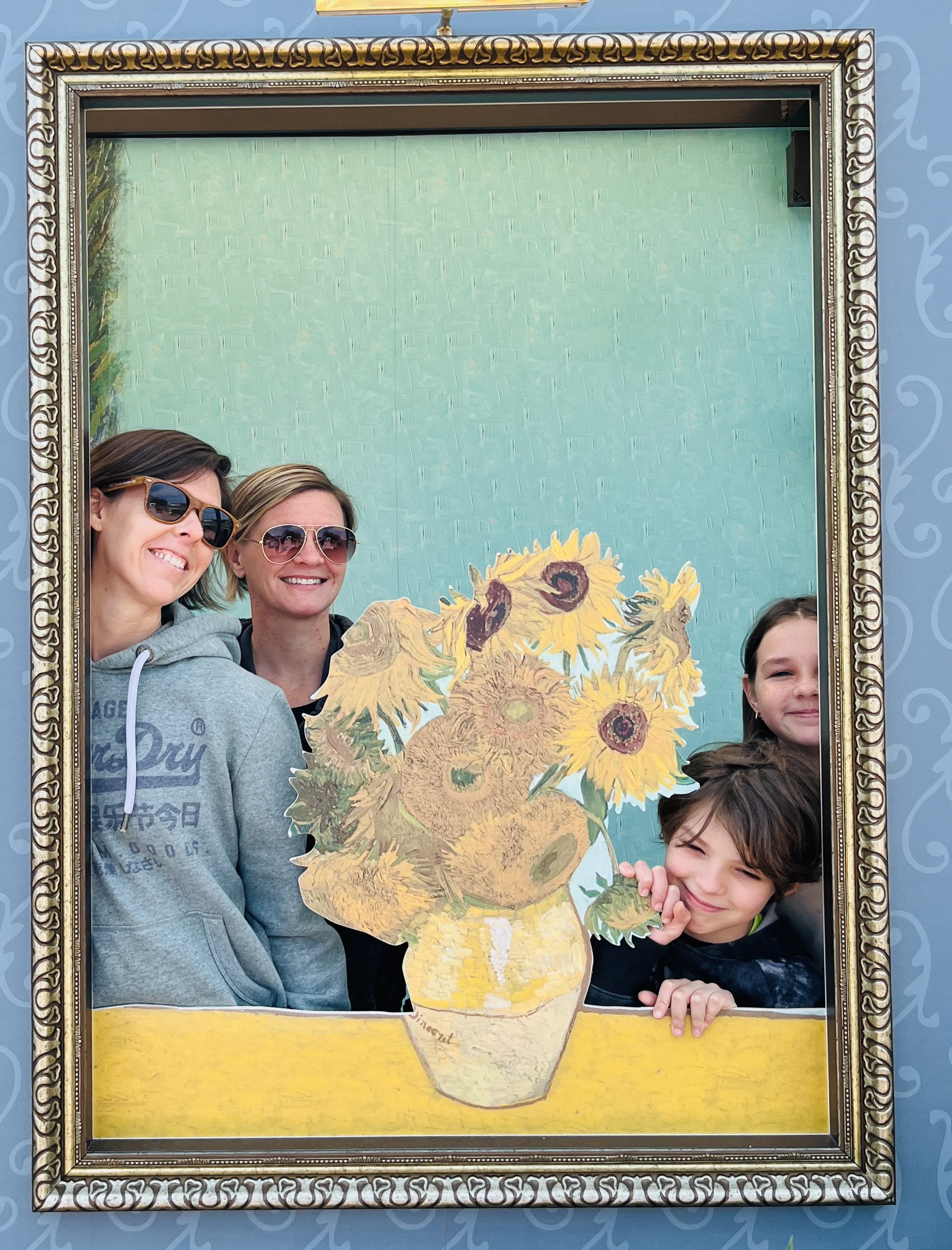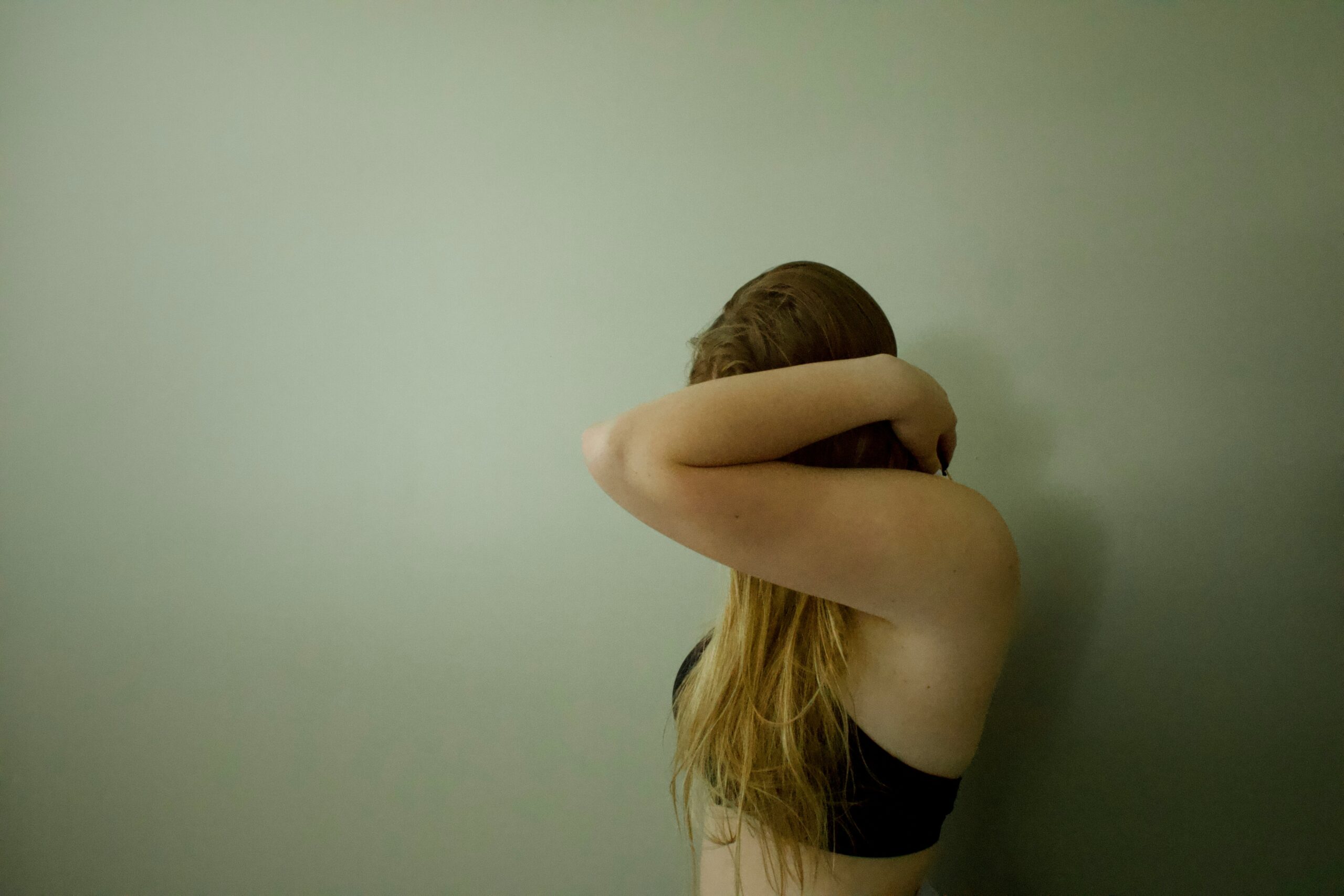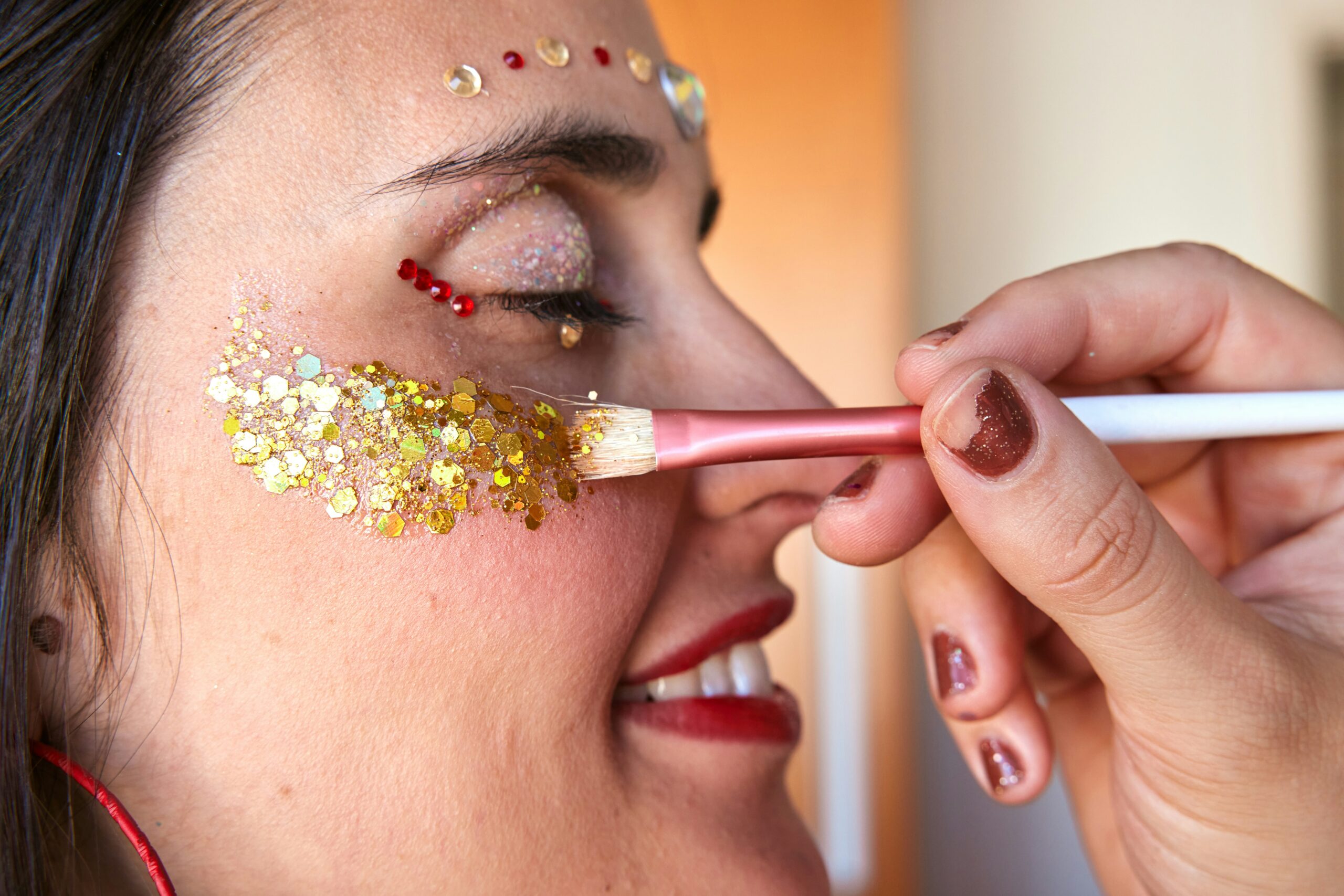“I’m about to blow up my life!” I stared at the woman across the table from me at the restaurant, hoping to catch a glimpse of sympathy or even pity in her eyes. Nothing. She was the one person I had found online who had just been through the major life change that I was about to face: coming out as a lesbian, divorcing my husband and doing it all with two young kids to care for.
Gulp.
“You need to stop saying that,” she responded. It was not unkind but it lacked the warm fuzzy feeling I was desperate for. Clearly, I would have to woman up if I was going to make it through this situation. Along with that, I’d need to reframe my perspective on what this major life change would mean for me and my family.
The Things We Don’t Plan
We’ve all encountered situations we didn’t plan for in our lives—whether it’s losing a job, having to distance ourselves from people we once considered as friends, or even having too much rosé and thinking bangs were a good idea. No matter how hard we try to predict and plan, life will inevitably present us with experiences we never envisioned as part of our life story.
For me, that was coming out as a lesbian.
I remember the first time I was completely captivated by another girl, whose name also happened to be Jill. I was in third grade and we were in a dance performance group together. Like most third-grade memories, I don’t recall much except that I wanted to be closer to her and that her energy was different from my other friends. I secretly hoped that someday she’d hug me. It never happened and I moved on with my life, following the somewhat typical societal path that I was told would lead to my most perfect life:
Step one: I would be a great student, which would get me into a great college.
Step two: From there I would get a great job and hopefully find a great guy along the way. We’d have a great wedding.
Step three: I’d cultivate some great humans in my uterus, and life would be… great.
My family fully supported this storyline, complete with my mom picking out my boyfriend in my first month of college at Boston University.
I didn’t grow up in what I’d consider a homophobic household. We weren’t very religious and I remember my mom was friends with a gay couple she worked with at Red Lobster. I also remember her telling me once how she supported gay people, but believed that marriage was reserved for a man and a woman.
She confided in me during my teenage years that she would never want a gay child—not because she had an issue with gay people, but because life would be so much harder for me. While I had never really considered my sexuality at that point, I took those words and packed them in my mental pocket as a reminder: my parents don’t want me to be gay.
And so that first serious boyfriend from college turned into a 20-year relationship, complete with marriage, two fabulously feral homeschooled children, a house in the suburbs with the white fence and a small business that was rated one of the “Best Mom and Pop Shops” in Tampa Bay.
I had the life that we supposedly dreamed of. It was the life that was supposed to leave me feeling fulfilled. Instead, I woke up every morning with an empty ache inside that asked, “Is this all there is?”
When the Time is Right
For almost a decade I wondered if I’d ever be able to come out. Most of the time I would gaslight myself into believing that my truth wasn’t actually true.
“Yes, I was attracted to women, but how could I possibly be gay if I married a man and we enjoyed our time together?”
“Yes, I didn’t enjoy having sex or intimate connection, but wasn’t that normal for some women… especially new mothers?”
“Yes, my husband and I acted like roommates most of the time, but wasn’t that okay for the sake of keeping a peaceful household for the kids?”
When I took on the role of motherhood, I vowed I would give my kids the best life possible. In my mind, that meant consistency and stability. So long as they had the same roof over their heads and the same two parental units with different genitalia, they could grow up in a nice, normal way. Right?
I spent my free time daydreaming about other life scenarios, often ones that involved some athletic blonde softball player of my imagination. I wondered if someday I would ever be able to come out and live my truth so that my insides and outsides could finally feel like they belonged to the same person.
But each time I daydreamed, I would remind myself of all of the reasons why it wasn’t a possibility:
“You can’t come out now. You just had a big expensive wedding in Miami!”
“You can’t come out now, you’re pregnant!”
“You can’t come out now, your baby is too young!”
“You can’t come out now, you have another child on the way!”
In the survival mode that is early motherhood, I was convinced that tossing a major, soul-shaking truth into the mix would be too much to survive. I could barely keep up with the impossible workload of washing cloth diapers and participating in baby “enrichment” activities while making sure my nipples didn’t leak through my shirt. If I was going to add anything else to my plate, it was not going to be the label of lesbian.
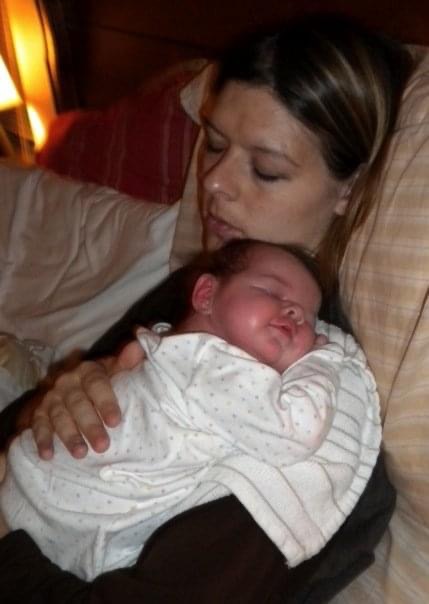
I convinced myself that I would simply have to wait to make a change until the kids were older. Isn’t that what a good, non-selfish mom would do? I hoped one day, as a more seasoned parent I’d finally have it all together. I optimistically envisioned that somehow our financial situation would be better too, even though there was certainly no guarantee of that. And rationalized that if I could hold out until the kids were older, I would be able to properly educate them on same-sex attraction. I’d have a recommended reading list and a therapist on speed dial so that we all could get through my “coming out” in a conflict-free way.
With each year that passed, the time was never right.
I started to wonder if I’d just have to wait until my babies were adults, so that my decision to come out wouldn’t impact their lives (as if somehow adult children are impermeable to having emotions around their parents’ divorce or coming out).
I ignored the fact that I spent hours scrolling mindlessly on my phone while they watched The Wiggles or Yo Gabba Gabba on TV. I ignored my apparent lack of mother-bear instinct and laughed it off as a joke that my husband was the better “mom” for hearing every whimper and coo in the middle of the night.
I was physically there for my kids, even though mentally I could never come close to being the parent that I wanted to be for them. I just couldn’t make myself care. I didn’t realize that with each year I waited, I waded deeper into the zero-entry pool of depression. My kids got a shell of a mom… but at least we had some semblance of ease. Wasn’t that what they needed?

Lessons from the Garden
I wish I would have learned the term “antifragile” earlier in my life. Unfortunately, the concept didn’t enter my world until my now-teenager’s powerful side eye pushed me out the door and into my barren Florida yard where I attempted to start a garden. I brought in a few plants and quickly learned that when I over-loved them, through over-watering or over-fertilizing, I was setting them up for root rot failure.
Plants are antifragile, which means that certain types of adversity can be beneficial to their growth. In the absence of water, a plant will send its roots deeper into the soil creating a more robust system. When facing winds, young trees will fortify their root base and send additional cells to the trunk to strengthen it for future windy days.
I started to look for other examples of antifragile things and encountered examples everywhere. From the Greek hydra who, when its head is chopped off, grows back two, to our immune system which generally becomes more resilient when exposed to some pathogen—there are many examples in our world of things that improve because of seemingly “bad” situations. It’s why our grandparents weren’t bothered when we ate dirt or drank from a hose. Humans are also antifragile.
This concept reframed how I approached parenting. I realized that the goal of parenting was not to create ease and remove any feelings of hardship, sadness, struggle, or disappointment. It was to allow those experiences to happen while providing as much love and safety as possible through the process.
Perhaps I could make the major change that I needed in my life—the one that would leave me feeling whole and aligned, present and joyful—but do so in a way where we could put guardrails around the adversity to make it easier to navigate. Perhaps our antifragile selves could come out of the experience as more adaptable and resilient human beings.
I was fortunate enough to reconnect with a friend’s sister who also happened to be a mental health counselor. As I spiraled out with the Worst Case Scenario Handbook version of how I was destroying my children’s lives, she brought the spinning to a stop with one simple homework assignment.
She called it The Three C’s: Comfort, Community, and Control.
My task was to write each word at the top of a journal page and then fill the page with all the things that brought me comfort, all of the people who would still be part of my community even after coming out, and all of the things in my life that I could still control (from the small things like what brand of toothpaste I used to bigger things like when and how I would break the news to people in my life).
Through that simple exercise, I realized that I had (or could find) people around me who would support me through my hardest days. I learned that even though I couldn’t control my husband’s reaction when I shared my soul’s truth, I could control my ability to provide him the support and space he needed to process. And when I crumbled from the hardship of trading my life of ease for a life of many unknowns, I had a long list of ways that I could care for myself so that I wouldn’t spontaneously combust.

Our Antifragile Spirits
I feel like the lady from the beginning of the Titanic movie when I say, “It’s been five long years…” since I came out to my husband. Contrary to my initial conversation with the woman at the restaurant, my life did not blow up. Our family did unravel though. It was like taking a well-loved crocheted blanket damaged by moth holes and thoughtfully unwinding the yarn, only to reuse it to make a new blanket that was different, stronger and more beautiful than the last.
The years were hard. They took effort. And many tears were shed along the way. But throughout the process, the love for my children always remained. Today they have an expanded family, my ex-husband with his girlfriend, and me with my wife. My children now have even more adults who love them and support them in unique ways beyond what my ex-husband and I could provide. My kids also have a mom who is present, who loves herself for the first time in a long time, and who demonstrated by example that we all have permission to course-correct when life feels off.
The future seems easier now. I no longer fear life shifts as I used to. We are growing strong like the roots of a tree–finding our own path and strengthening our support for each other through every change of life.
Author
-
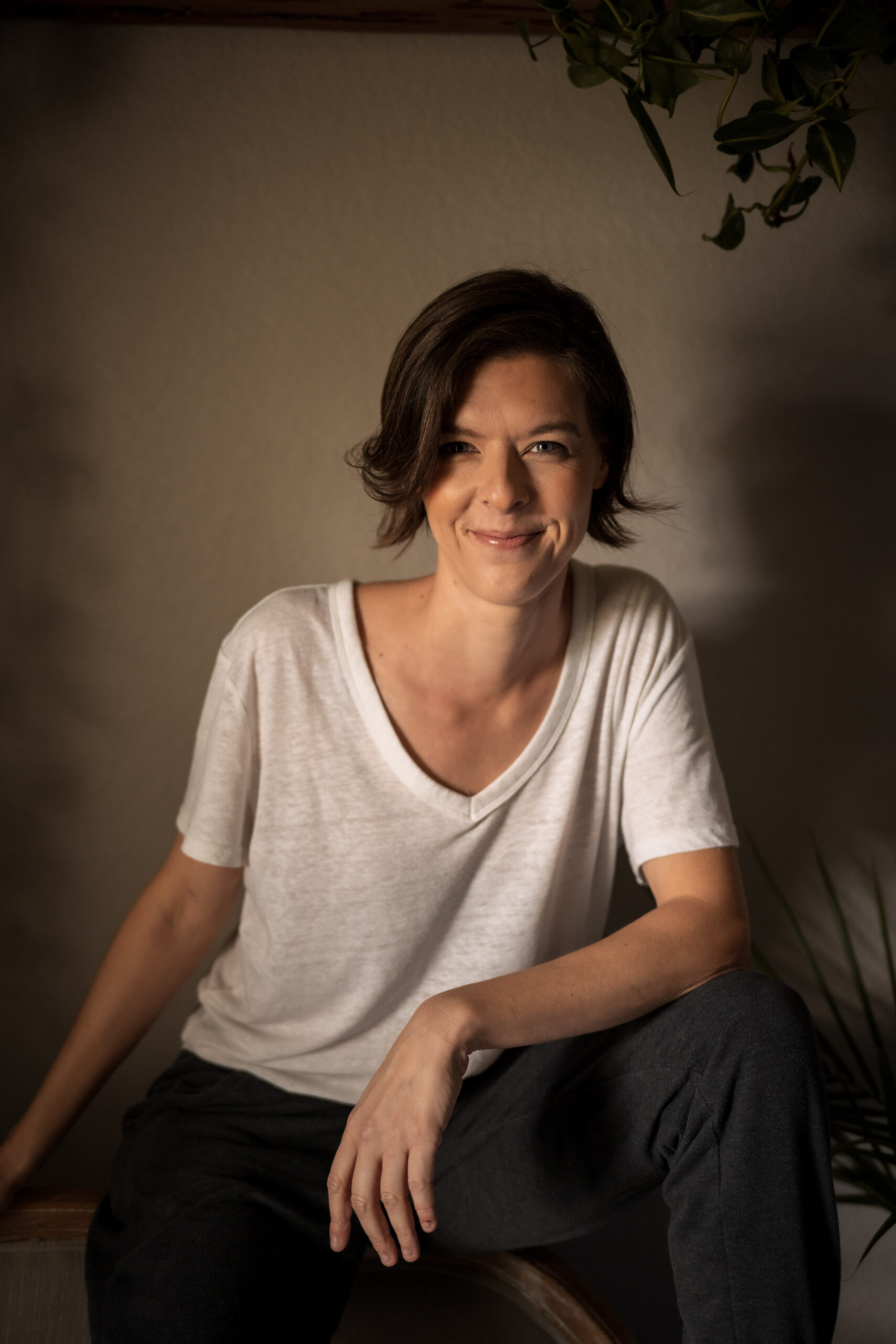
Jillian Abby is a storytelling on a mission to bring more self-love into this world and create bridges of understanding, particularly for marginalized voices. Her memoir, Perfectly Queer, was published by Hay House in 2023 and was featured as one of Good Morning America's recommended Spring reads. When not writing or ghostwriting, you can find her teaching her kids that cheese is not a vegetable, staring at her papaya tree hoping it will grow, or making to-do lists for her to-do lists. She lives in Tampa with her wife, Jen, and their rescue pets, Lava and Poe.
View all posts

